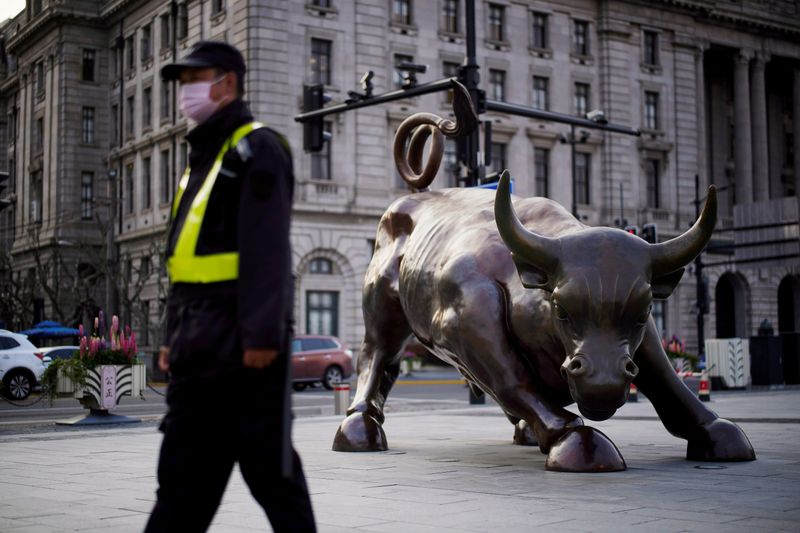Investing.com -- Most Asian stock markets rose on Friday amid optimism over the approval of a deal to raise the U.S. debt ceiling and avert a default, with Chinese markets rebounding from six-month lows on renewed hopes of an economic recovery in the country.
The U.S. Senate voted in favor of a bipartisan bill to raise the debt ceiling late-Thursday, just days before a June 5 deadline for a default. The bill is now set to be signed into law by President Joe Biden, and marks the lifting of a key source of anxiety for financial markets over the past month.
Optimism over the bill triggered gains across most asset classes on Friday.
Hong Kong’s Hang Seng index was the best performer for the day, rallying 3.5% and out of bear market territory on strength in heavyweight technology stocks. Stocks including Tencent Holdings Ltd (HK:0700) and Alibaba Group Holding Ltd (HK:9988) (NYSE:BABA) surged between 4% and 6% as reports said Nvidia Corporation (NASDAQ:NVDA) head Jensen Huang was planning to meet top executives from major Chinese technology firms.
The Hang Seng was set for its best day in three months, also supported by locally-listed Chinese stocks.
China’s Shanghai Shenzhen CSI 300 and Shanghai Composite indexes rose 1.3% and 0.8%, respectively, rebounding from six-month lows as a private survey released on Thursday showed some resilience in local manufacturing activity.
The reading spurred some optimism over an economic recovery in the country this year, and saw traders pile into heavily-discounted Chinese markets.
Japan’s Nikkei 225 index raced back towards 33-year highs with a 1% bounce on Friday, while the broader TOPIX added 1%. Bank of Japan Governor Kazuo Ueda said the bank planned to maintain its ultra-loose policy for the time being, heralding accommodative conditions for local stocks.
Tech investor SoftBank Group Corp. (TYO:9984) jumped 5.4% and was the best performer on the Nikkei, buoyed chiefly by a frenzy for chipmaking and artificial intelligence stocks, as the firm prepares to spin off its chip designing unit Arm.
South Korea’s KOSPI added 1% as data showed the country’s economy grew slightly more than expected in the first quarter, while inflation remained steady in May.
Optimism over China helped Australia’s ASX 200 index add 0.4%, although financial stocks were held back by data showing an unexpected decline in home loans through May, as local interest rates rise.
But despite Friday’s gains, most Asian markets were still trading in a flat-to-low range for the week, amid caution ahead of key U.S. nonfarm payrolls data later in the day.
The reading is largely expected to factor into the Federal Reserve’s stance on future rate hikes.
